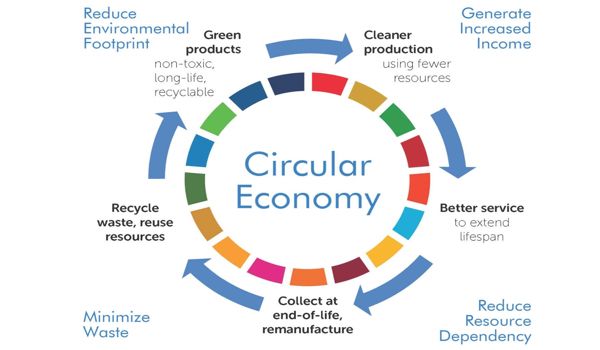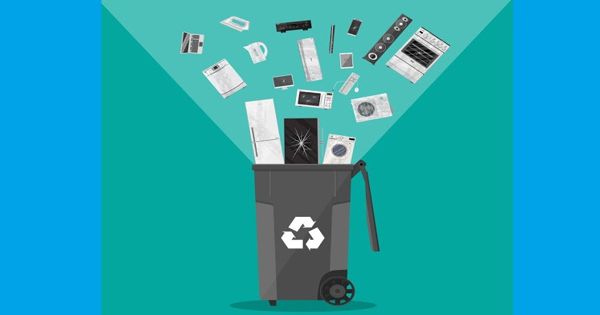A new study creates a framework for understanding the choices that an electronic waste recycler must make, as well as the role that digital fraud prevention could play in preventing dishonest recycling practices.
Consider how many different types of technology the average household has purchased over the last decade. Phones, TVs, computers, tablets, and game consoles don’t last forever, and repairing them is difficult and often as expensive as buying a new one.
Electronics are an essential part of modern life, but electronic waste (e-waste) is a complex and growing challenge on the path to a circular economy – a more sustainable economic system that focuses on recycling materials and minimizing waste. The prevalence of dishonest recycling practices by companies that claim to recycle electronics but actually dispose of them in other ways, such as landfills or shipping the waste to other countries, adds to the global waste challenge.
New research from the University of Pittsburgh Swanson School of Engineering’s Hypothetical Materials Lab develops a framework to understand the choices a recycler must make and the role that digital fraud prevention could play in preventing dishonest recycling practices.
New research develops a framework to understand the choices an electronic waste recycler has to make and the role that digital fraud prevention could have in preventing dishonest recycling practices.
Electronic waste is the world’s fastest-growing category of hazardous solid waste. Addressing the issue will necessitate international cooperation, economic incentives that protect labor, and management approaches that minimize negative environmental and human health impacts.
“Electronics have huge environmental impacts throughout their life cycle, from mining rare raw materials to energy-intensive manufacturing to the complex e-waste stream,” said Christopher Wilmer, the William Kepler Whiteford Faculty Fellow and associate professor of chemical and petroleum engineering who directs the Hypothetical Materials Lab. “A circular economy model is well suited to mitigating each of these impacts, but it is currently estimated that less than 40% of e-waste is reused or recycled. If our technology is to be sustainable, we must first understand the barriers to e-waste recycling.”
Some U.S. companies that have promoted safe, ethical, and environmentally friendly recycling practices never recycle much of what they receive; instead, their e-waste is illegally stockpiled, abandoned, or exported. The Basel Action Network used GPS trackers in electronics delivered to US recyclers between 2014 and 2016, revealing that 30% of the products ended up overseas.

The researchers created a model framework to investigate dishonest end-of-life electronics management and what motivates recyclers to engage in fraudulent activities. They discover that the primary way to ensure that an e-waste recycler will engage in honest practices with minimal supervision is to make it a more profitable option, either by lowering recycling costs or increasing penalties for fraudulent practices.
“The cost of honest recycling is the main barrier,” said lead author Daniel Salmon, a graduate student in the Department of Electrical and Computer Engineering. “One of our key findings is that if we can make recycling more profitable for businesses, we will see less dishonest recycling. Targeted subsidies, increased penalties for fraud, and manufacturers making their electronics more easily recyclable are all potential solutions to this problem.”
The researchers also propose using blockchain as a neutral, third-party supervisor to prevent fraudulent recycling practices.
“Our model mentions the impact of monitoring and supervision, but self-reporting by businesses allows for deception. Something like the blockchain, on the other hand, does not “Wilmer, the founder of Ledger, the first peer-reviewed scholarly journal dedicated to blockchain and cryptocurrency, made the statement. “Relying on an immutable record could be one solution to preventing fraud and aligning recycler behaviors toward a circular economy.”
The research is part of a larger NSF-funded convergence research project on the circular economy led by Melissa Bilec, Mascaro Center deputy director, associate professor of civil and environmental engineering, and Roberta A. Luxbacher Faculty Fellow at Pitt.














